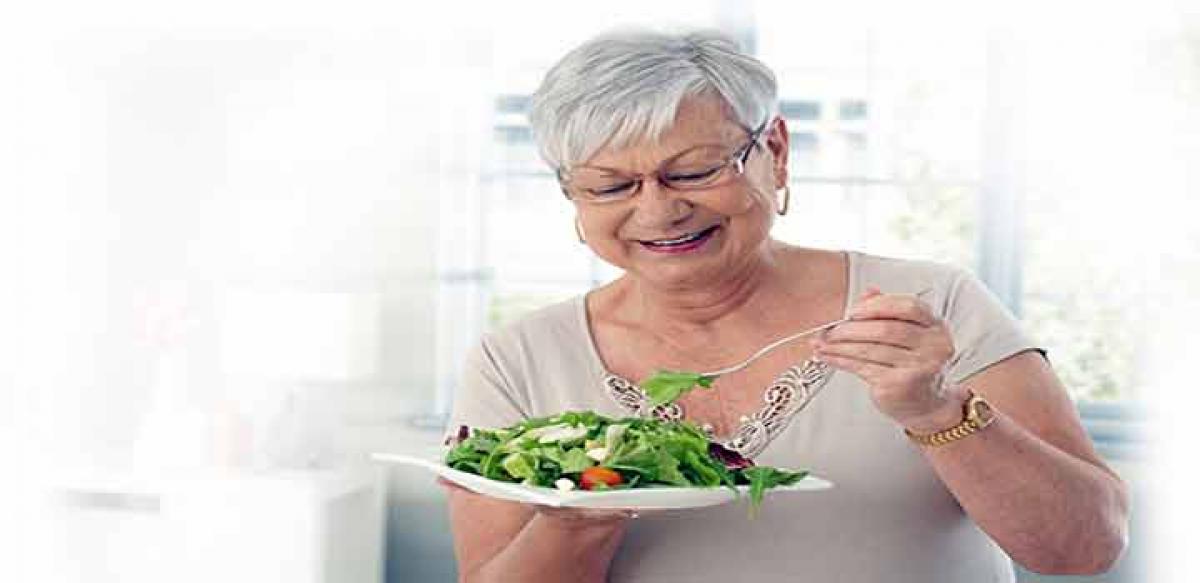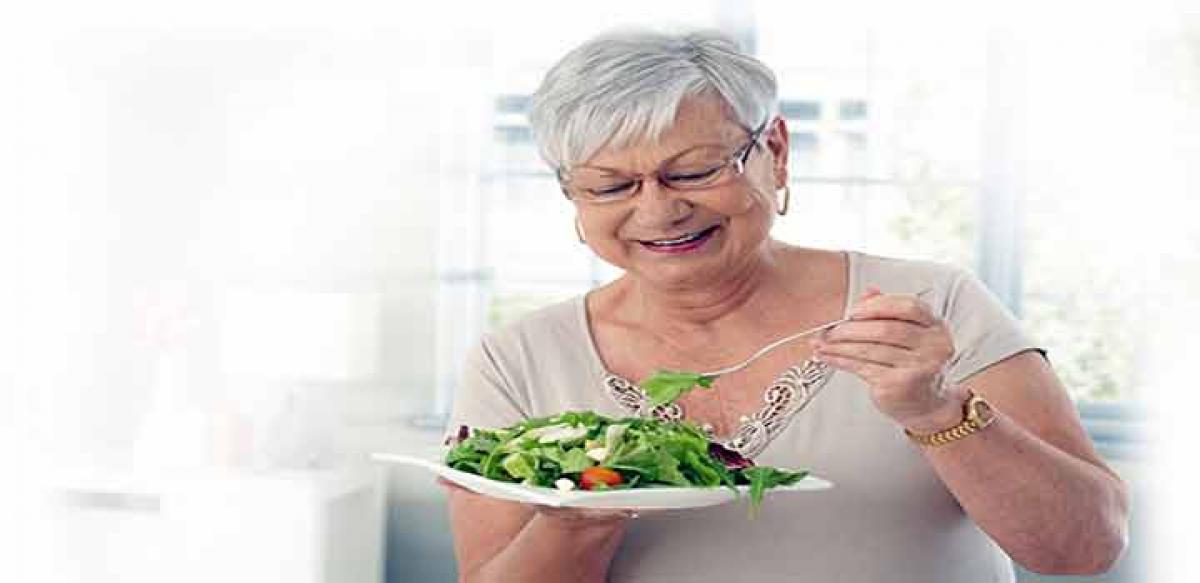Live
- Stay alert to prevent fog-related mishaps
- Students urged to focus on latest technology
- Atrocities On SCs/STs: Take stern action against culprits says Collector Mahesh Kumar
- Rich tributes paid to Ranga on his death anniv
- Bhavani Deeksha Viramana: Civic chief commends VMC staff’s tireless efforts
- CPI launches centenary celebrations in Ongole
- Skater Jessy Raj Matrapu receives national award
- Cantt MLA takes up rps’ issues with CM
- Include tourism under PSL, AP Chambers appeals to RBI
- CPI Centenary Celebrations: Flag hoisting held at 32 locations in EG dist
Just In

Conventional wisdom tells us that creaky joints, lack of appetite and a closet full of medicines are an inevitable part of ageing. But an increasing number of health professionals across the globe are endorsing the view that a prudent diet and exercise programme can help the elderly sail through their golden years. Dr Smriti Vyas, a consultant general physician, elaborates,

Health professionals across the globe say that with the right intake of nutrients and right exercise plan gives a well-balanced health in the golden years
Conventional wisdom tells us that creaky joints, lack of appetite and a closet full of medicines are an inevitable part of ageing. But an increasing number of health professionals across the globe are endorsing the view that a prudent diet and exercise programme can help the elderly sail through their golden years. Dr Smriti Vyas, a consultant general physician, elaborates,
“An age well plan is essentially a long-term, holistic look at an elderly person’s diet and exercise regimen to help minimise her/his chances of falling ill,
while simultaneously maximising physical and mental productivity.” Since the body composition changes with age, Vyas adds, muscle mass decreases due to disuse and fatty tissue increases due to a decelerated metabolism.
This is why the nutritional and exercise requirements for the elderly are completely different from that of say a teenager or a 40-year-old.
The seniors need to consume extra doses of certain nutrients and totally avoid the others.So what are the foods to focus on? Dr Ravinder K Tuli, a holistic medicine practitioner and senior consultant at Indraprastha Apollo Hospital,
New Delhi, says, “Calcium is imperative for the prevention of osteoporosis (porosity of bones leading to brittleness) and maintenance of healthy bones, while Vitamin D helps absorb calcium into the system. Vitamin B12 is needed to build red blood cells and maintain healthy nerves. Similarly, zinc helps shore up one's immunity while potassium maintains blood pressure."
Additionally, doctors recommend some folic acid and B vitamins that help lower levels of homocysteine, a compound found in the blood that causes cardiac disorders. “Bowel disorders are also quite common in old age,” points out nutritionist Dr Ishi Khosla, “So one should increase one's intake of fibre to prevent constipation."
Five servings of fruits and vegetables per day, like carrots (provides beta-carotene for better vision), peppers, melons, cabbages, tomatoes (contains lycopene that inhibits cancers), berries and at least a cupful each of wholegrain flour and cereals must be consumed. Also, Omega 3 fatty acids - found in certain types of fish, flax seeds and canola oils - are important.
With the right intake of nutrients comes the right kind of exercise plan for that well balanced health. Although cardiovascular and aerobic exercises work well for all age groups,
it is best that the elderly do not overdo the exercise bit. Basically, the idea is to keep moving - a walk in the nearby park, a climb up and down the stairs four-five times in a day, doing chores like gardening or vacuuming the house, and playing with the grandchildren are all wonderful, and effective, ways to stay active.
Of course, improving the strength of core muscles - the abdomen, trunk region, pelvis and buttocks - can definitely go a long way in improving bodily balance, motility (spontaneous movement) and posture. “As people age,” explains fitness expert Ashwini Kolhapure,
“The nerves in their cerebellum - the command centre for movement - begin to lose their waxy myelin coatings and wither. By activating these neural centres through a series of movements, people can keep these nerves activated longer.” According to Kolhapure, pilates, yoga, tai chi - all different exercise regimens - enormously contributes to building 'core strength'.
Apart from a healthy body, a sound frame of mind is necessary to live a full life. And the right mental attitude comes from building a close circle of friends, cultivating hobbies and generally keeping busy. Take Japan’s longest living physician and wellness guru, Dr Shigeaki Hinohara, 104, who has penned bestsellers like 'How To Live Well' and ‘Living Long, Living Good’.
He eats frugally and sleeps little but believes the right mental attitude is the key to his longevity. In a recent interview he has stated that “Energy comes from feeling good and not from eating well or sleeping a lot”. "If you keep learning something new, keep working even after 75, you'll never get old," is his advice.
Desi spiritual maestro Deepak Chopra too advocates pursuing creative pursuits as the best "anti-ageing pill". He says, "Maintain old friendships, build new ones and, apart from physical and mental well-being, try to develop your spiritual side too. This can act as the wonder drug for many of your age-related problems."
By:Neeta Lal

© 2024 Hyderabad Media House Limited/The Hans India. All rights reserved. Powered by hocalwire.com







